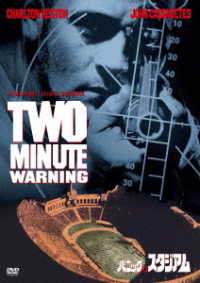- ホーム
- > 洋書
- > 英文書
- > History / World
Full Description
This edited volume offers a comprehensive revaluation of Trauma and Memory Studies, foregrounding perspectives from India and beyond. It critically interrogates the prevailing Euro-centric paradigm within the field, advocating for the amplification and contextualization of voices originating from South Asian spatial and temporal contexts. Departing from conventional West/North-centric narratives, the text prioritizes the narratives of historically marginalized survivor groups, encompassing individuals affected by pivotal events such as the 26/11 terror attacks in Mumbai, the Bengal famine, the dispersion of the Indian diaspora, and the experiences of incarcerated populations in Iran, Kenya, Palestine, etc. Through an in-depth exploration of societal mechanisms for remembrance and coping strategies vis-à-vis traumatic episodes, such as the Jallianwala Bagh massacre, the book unveils the intricate interplay of political, cultural, and social dynamics. It explores the complicated dynamics of post-colonial and post-conflict societies in India by using a range of interdisciplinary methodologies, such as examining artistic expressions, oral histories, and digital media. It discusses the ongoing debate between hegemonic historical narratives and the often-marginalized voices of subaltern communities. This book serves as an indispensable resource for academics, students, and researchers committed to the exploration of trauma and memory within non-Western contexts.
Contents
Towards an Aesthetics and Atmosphere of Remembrance: Memorialising the Trauma of Jallianwala Bagh.- Secondary Trauma, Famine, and the Hindi Literati: Hindi Narrative of the Bengal Famine in Hams Literary Magazine.- Telling the Untold: Preserving Memories and Quiet Amnesias of the Partition.- Climate Change and the Experiences of the Marginalised South Pacific Islanders: Tales of Fear, Suffering and Resistance in Literature.- Witnessing, Trauma and Private Memories of Public Terror: Reading Selected Witness Narratives of the 26/11 Mumbai Attacks.- Muharram in Kashmir: Historical Trauma, Performance and Resistance.- Harmonies of Subversion: Exploring Kashmiri Songs as Sonic Archives.- Hand-Crafted Memories: Remembering Voices from Shaheen Bagh and The Bhopal Gas Disaster through Avant-garde Feminist Media.- Maps of Coffee: Diasporas of Trauma in Selected Poems of Mahmoud Darwish.- Storytelling as Protest: Counter-Narratives from Kenya in Yvonne Adhiambo Ouwur's Dust.- Revisioning Biblical Women: Retelling Memory in Jeet Thayil's Names of the Women.- Transgenerational Trauma: The Entanglement of Family Memories in 21st Century Diasporic Women's Literatures from the Global South.- War and Memory: Remembering Women's Bodies in War through a Reading of Brian De Palma's Casualties of War.- From Delhi with (Co)Creativity: Literary Texts as Material Evidence of Urban Memories and Experiences.- Remembering and Forgetting War Memory in Nayomi Munaweera's Island of a Thousand Mirrors.- Unveiling Alterity: Exploring the Palestinian and Israeli Multifaceted Memories, Identities and Geopolitics through Select Children's Films.- Remembering, Forgetting, Forgiving: Perspectives from Philosophy, Psychology, and Manto's spasmodic short stories on the 1947 Partition.- Articulating Humiliation: Trauma and Acousmatic Agency in Selected Life Writings of Harishankar Jaladas.- This is My Story: Role of Tibet Museum in Preserving Memory in Exile.- Unveiling Cancer, Trauma, and Recovery: A Study of Manisha Koirala and Lisa Ray's Autobiographies.- Understanding Intersections of Caste, Gender and Migration in Uttarakhand through Cinematic Representations of Trauma and Memory in Dev Bhoomi.








